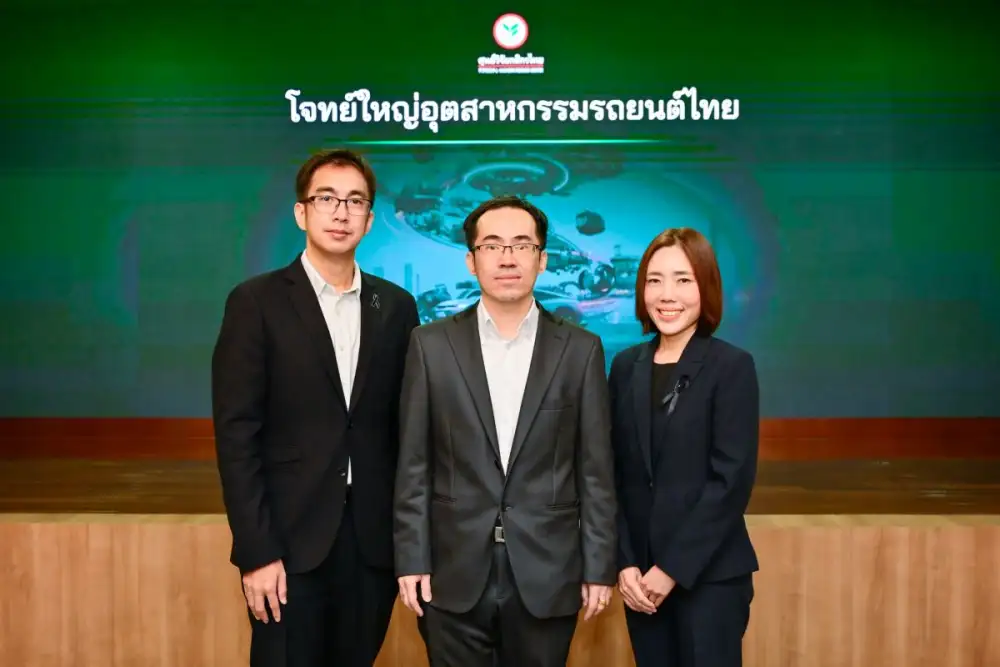
marking one of the most significant tests since the industry's establishment in the country, says KResearch.
KASIKORN RESEARCH CENTER (KResearch) views that Thailand's automotive industry must brace for US import tariff measures, intensifying competition from Chinese automakers, and more stringent environmental and safety standards of trading partners, all of which pose challenges to the industry's long-term adaptation and competitiveness.
Dr. Rujipun Assarut, KResearch Assistant Managing Director, said, "Although Thailand's automobile exports to the US account for a small share, the US import tariff measure under Section 232 is likely to indirectly affect Thai car exports to global markets. This is because major producers such as Japan and South Korea may diversify their exports to other markets to reduce reliance on the US, thereby intensifying global competition. Concurrently, the measure may directly hurt Thailand's auto parts exports to the US, which account for around 26 percent of the total value of Thai auto parts exports. However, Thailand still holds a competitive edge in terms of cost and quality for small-sized tires. Moreover, Thailand will benefit from a tariff exemption under the Section 232 Import Adjustment Offset measure, covering about 12 percent of the export value of auto parts [excluding tires] to the US, which is higher than that of Japan at only 3 percent."
Mrs. Hathaiwal Tungkaterakul, KResearch Senior Researcher, added, "The aggressive market expansion of Chinese automakers through price wars has impacted Thailand's automotive industry across both the manufacturing and service sectors, as traditional car brands have lost market share in Thailand and globally as consumers have increasingly favored Chinese electric vehicles. At the same time, Australia, one of Thailand's key automobile export markets, has tightened its CO2 emission and braking system standards since early 2025. This shift is expected to boost demand for hybrid vehicles, both HEVs and PHEVs, but will likely weigh upon demand for internal combustion engine [ICE] vehicles, which remain Thailand's key export products."
Dr. Krit Sitathani, KResearch Assistant Managing Director, concluded, "Thailand's bringing forward of its Net Zero target by 15 years may require the transportation sector to accelerate its transition by increasing the proportion of new battery electric vehicle (BEV) sales. Currently, BEVs account for only 1.2 percent of all registered vehicles, leaving significant room for production to replace all ICE vehicles by 2050. Meanwhile, approximately 65 percent of listed auto parts manufacturers have yet to set greenhouse gas reduction targets, although large companies have begun to adapt.
KResearch advises Thai automotive industry entrepreneurs, who are facing pressure from US import tariff measures, intense competition with Chinese carmakers, Thailand's more stringent environmental standards and accelerated Net Zero target, as well as the growing trend of electric vehicles, that this is a critical period to adjust their strategies in response to the market direction, which is trending towards a declining share of ICE vehicles and an increasing share of HEVs and PHEVs, while also monitoring the market expansion opportunity for BEVs.